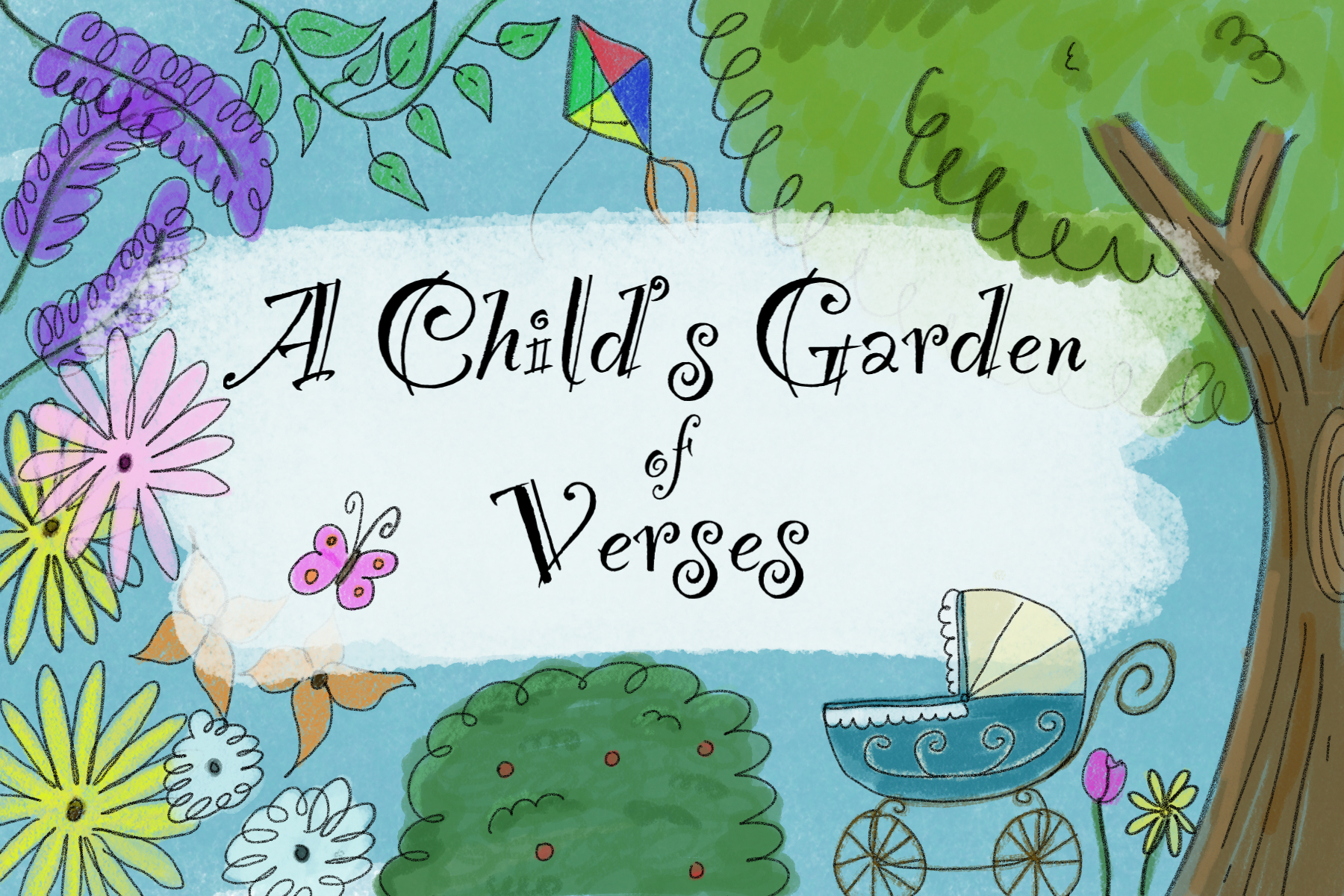Robert Louis Stevenson was an incredible Scottish writer of the nineteenth century and a proud proponent of the pursuit of happiness over material wealth. His novels “Treasure Island” and “The Strange Case of Dr Jekyll and Mr Hyde” have remained prominent fixtures in the literary community despite the century that has elapsed since Stevenson’s death. The 1885 publication “A Child’s Garden of Verses” remains one of his most popular works and yet its emotional complexity is consistently overlooked. Though consisting of poetry crafted for children, the collection is rife with morals and themes that adults ought to be reminded of.
“The Lamplighter” is a touching poem about the admiration children harbor for the adults in their lives, regardless of the adults’ socioeconomic status. In the poem, the son of a wealthy banker eagerly awaits the moment when the lamplighter Leerie comes up his street. The boy dreams of becoming a lamplighter when he grows up, proclaiming, “But I, when I am stronger and can choose what I’m to do, / Oh Leerie, I’ll go round at night and light the lamps with you!” Despite his father, who is “as rich as he can be,” this boy finds true marvel in the world as he watches a simple lamplighter going about his duties. He has not yet learned the prejudices of the working world and the disdain a well-to-do boy like himself should reserve for working class men. Stevenson highlights the innate goodness and respect in the youth and paints it as something sacred, something that only brings joy. The boy does not know of the specific social hierarchy dependent upon income and profession, and thus does not withhold his respect and adoration from the people who deserve it.
An alternative interpretation of the poem involves the widespread perception that an adult’s life is duller than a child’s. To the boy, the professions of his father and the other adults around him are boring and not worthwhile pursuits. Only Leerie possesses a life worth wanting, as the bringer of light in darkness. Leerie has a magical job; the boy’s father does not. The boy yearns to break free from his future as an office worker and carve his own path, a message made more significant when considering a separate Stevenson quote: “A happy man or woman is a better thing to find than a five-pound note.” Stevenson adds his personal discontent with the materialism of the adult world to the narration of a young boy, who craves adventure. The boy, perhaps a surrogate for Stevenson, desires an existence filled with excitement and devoid of monotony. He never wants to adopt the tiredness of grown-ups, but to continue to live with appreciation, as he believes Leerie does.
“The Land of Nod” describes a child’s experiences with dreams, independence and the unknown. Spending their days playing with friends and perpetually surrounded by companions, the narrator notes about their nightly visits to the eponymous land of nod: “All by myself I have to go, / With none to tell me what to do….” They say this with little to no trepidation, as loneliness does not daunt them. The child holds steady confidence in their own self-sufficiency. Although they spend the majority of their waking hours in the company and safety of others, they demonstrate a sense of competency not yet corrupted by doubt and worry. Their steadfastness is a trait often abolished in the minds of adults as they mature and are introduced to inadequacy, but necessary for independence and progress.
The poem goes on:“The strangest things are there for me, / … / And many frightening sights abroad.” Even the frightening things they recount with a stoic disposition. Calmly, the narrator brings readers and listeners into the strangeness of their dreams, which they face with curiosity rather than fear. “The Land of Nod” is a subtle reminder to any reader that a diversion from routine or a departure from home need not be fear-inducing but an opportunity for learning. The warped landscapes the mind concocts in sleep and the monstrosities that dwell there, are so fascinating to the child that they endeavor to return even in daytime. The unknown of dreams is full of promise, not danger, and only piques their curiosity night and night again. That which is undiscovered is actively sought, not actively avoided. The poem closes as they state that they cannot dream in daytime, “Nor can remember plain and clear / The curious music that I hear.”
A lesson in good-byes, “Farewell to the Farm” paints the onerous process of leaving home behind as an invigorating, anticipated opening of a new chapter. The children in the poem certainly do not ignore the magnitude of their leaving, as the entire poem is a farewell, hence the title. However, the good-byes are punctuated with exclamation points. Rather than melancholy and regretful, the children board a train with gratitude at what their old home has given them. Each of the four stanzas concludes with the same line: “Good-bye, good-bye, to everything!” They await the prospects of their future while acknowledging their past, which is a balance many adults have difficulty maintaining. As the farmhouse shrinks on the horizon as the train departs, the children’s optimism does not waver and they continue their chant of thankfulness and earnestness. To them, the good-bye is only good: it opens opportunities while allowing them to recall the joy once had on the farm.
“To My Mother” takes its rightful place in the final pages of “A Child’s Garden of Verses,” where Stevenson wrote short odes to his loved ones. The poem, a mere quatrain, goes as follows:
You too, my mother, read my rhymes
For love of unforgotten times,
And you may chance to hear once more
The little feet along the floor.
Short and poignant, “To My Mother” possesses a gut-wrenching emotional quality rarely found even in the oeuvres of the most well-regarded writers. The feeling of loss arches over the poem, that sense that what has passed may never be recovered, but can still be hoped for. The simple imagery of a small child’s feet on the floor evokes a tearful fondness in readers, who feel the sadness of loss alongside the joy of remembering. Stevenson adeptly writes about love that exists outside of time, the perfect conclusion to this anthology, his ode to people everywhere.
So mild at first glance, the poetry in “A Child’s Garden of Verses” possesses moral and emotional intricacies that serve to enrich adults’ and children’s lives alike. Discussions of respect, independence and simple joy do not only pertain to the youth; in fact, they may pertain to a vaster degree to the jaded adult populace. Robert Louis Stevenson has written an unequivocally moving masterpiece, and to withhold the wisdom in the verses from adults would be to deprive a great many people of a great deal of goodness.
















